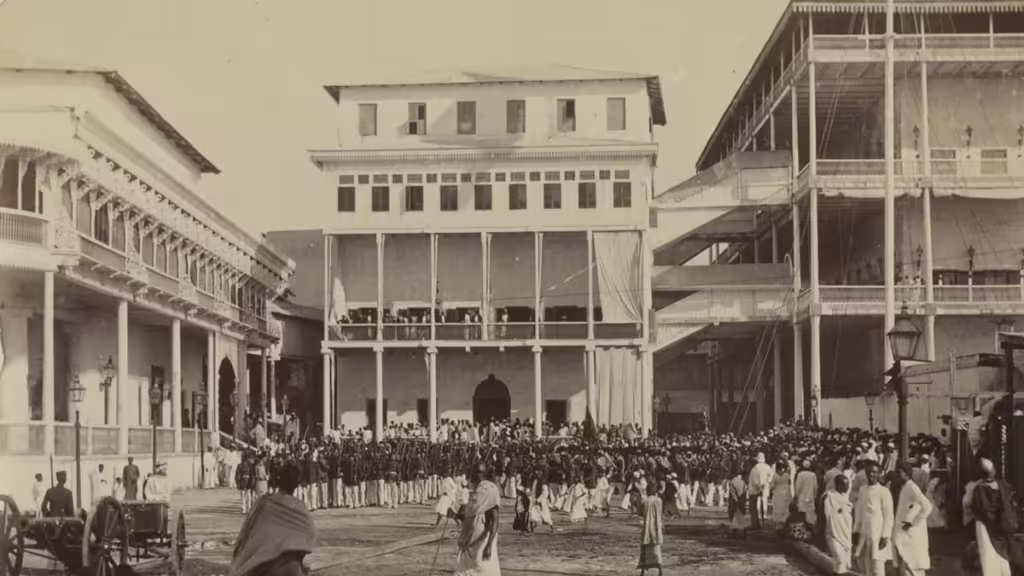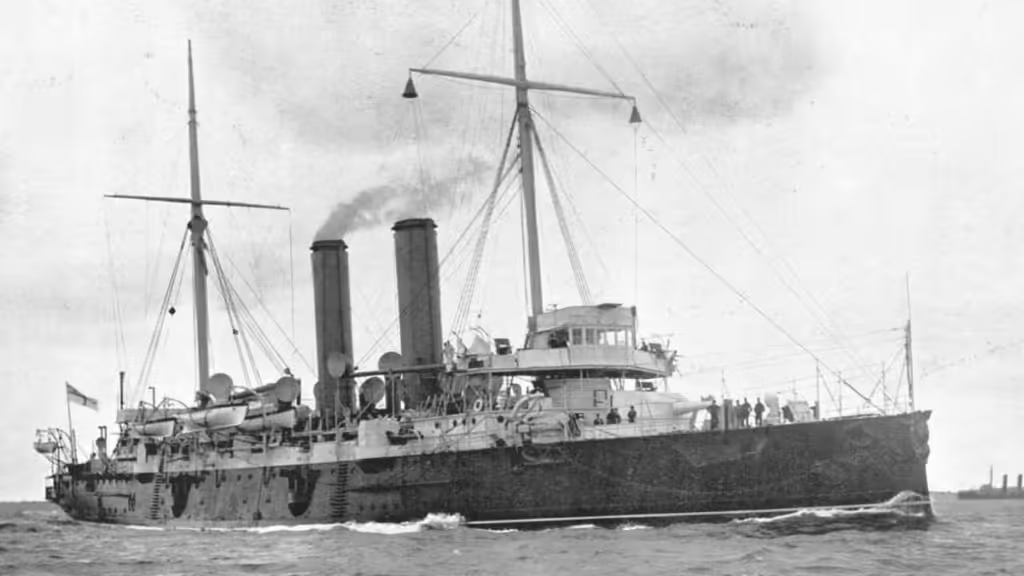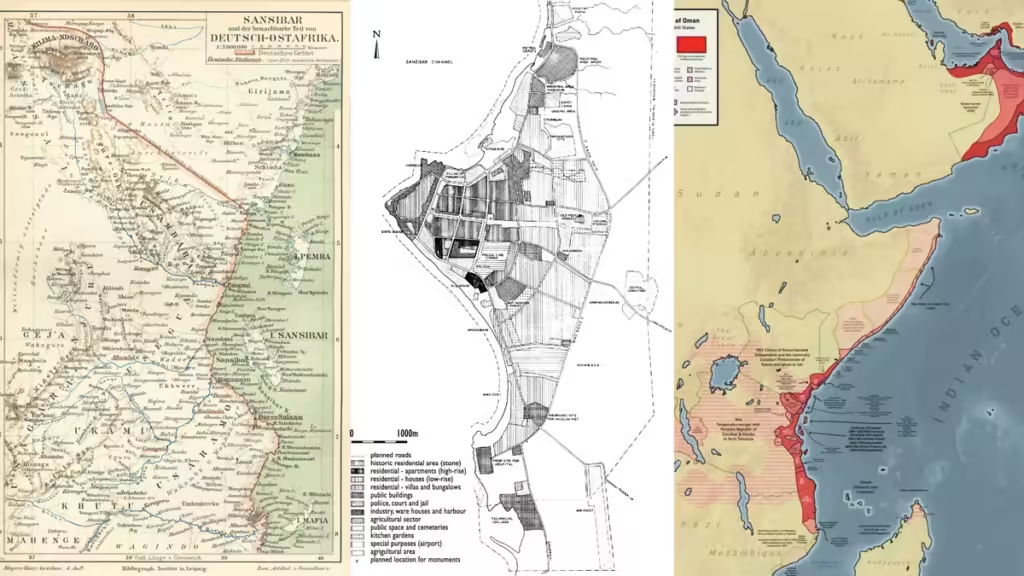When we think of wars, images of long-drawn-out battles, sieges, and years of conflict come to mind. However, the shortest war in history defies this notion entirely. Lasting only 38 minutes, the Anglo-Zanzibar War of 1896 remains one of the most unusual military confrontations ever recorded. Despite its brevity, this conflict reveals much about the political tensions and colonial power dynamics of the time. From the spark that ignited the war to its lasting implications, let’s dive into 10 astonishing facts about the shortest war in history and explore why it remains such a captivating moment in world history.

Table of Contents
1. The Shortest War in History Lasted Just 38 Minutes
The Anglo-Zanzibar War holds the Guinness World Record for the shortest war in history, lasting only 38 minutes. This lightning-fast conflict took place on the morning of August 27, 1896. While most wars span months or years and involve complex strategies, this one was decided in under an hour, marking it as a true anomaly in military history. Despite its short duration, the war had significant consequences for the future of Zanzibar and its relationship with the British Empire, proving that even the briefest of conflicts can alter the course of history.

2. The War Was Triggered by a Succession Crisis
The shortest war in history was sparked by a political dispute over who would become the next Sultan of Zanzibar. When Sultan Hamad bin Thuwaini, a pro-British ruler, died unexpectedly, his cousin Khalid bin Barghash seized power. This move alarmed the British authorities, who had their own candidate for the throne, Hamoud bin Mohammed, a figure they believed would be more compliant with their colonial agenda. Khalid’s refusal to step aside triggered a standoff with the British, which would escalate into the shortest war in history. This succession crisis highlights how colonial powers often manipulated local politics to maintain control over their territories.
3. The British Gave Sultan Khalid an Ultimatum
Before the war broke out, the British attempted to resolve the situation diplomatically by issuing an ultimatum to Sultan Khalid. He was told to abdicate the throne by 9:00 AM on August 27, 1896, or face military action. Khalid, believing his forces could hold their own against the British, refused to step down. This miscalculation proved disastrous, as the British quickly mobilized their naval forces to enforce the ultimatum. Khalid’s defiance, however short-lived, exemplified the kind of resistance that colonial powers often faced in their overseas territories.
4. Zanzibar’s Forces Were Massively Outgunned
One of the main reasons the Anglo-Zanzibar War ended so quickly was the sheer imbalance of military power. Khalid’s forces consisted of about 3,000 poorly armed men, many of whom were civilians or palace guards. In stark contrast, the British had a small but highly trained naval fleet stationed in the harbor, including five warships equipped with modern artillery. While Khalid’s men had a few cannons and rifles, their outdated equipment was no match for the advanced firepower of the British Royal Navy. This disparity in military strength led to the swift and overwhelming defeat of Zanzibar’s forces.

5. The Battle Was Largely Decided in the First Few Minutes
Once the British ultimatum expired at 9:00 AM, the war began. British warships opened fire on the Sultan’s palace at 9:02 AM, immediately bombarding the building and destroying key defensive positions. The initial shelling caused chaos among Khalid’s forces, many of whom fled or surrendered within minutes. By 9:40 AM, the battle was effectively over, with Khalid fleeing to the German consulate to seek asylum. The swift destruction of the palace and the rapid collapse of Zanzibar’s defense ensured that the war was over almost as soon as it had begun, making it a remarkable display of British naval power.
6. The British Sustained Only One Casualty
Despite the destruction unleashed during the 38-minute conflict, the British sustained remarkably few casualties—just one injury to a British sailor. This contrasts sharply with the losses on the Zanzibari side, where approximately 500 soldiers and civilians were killed or wounded. The minimal British casualties underscore the one-sided nature of the war and reflect the overwhelming superiority of British firepower. For Zanzibar, the war was devastating, not only in terms of lives lost but also in its symbolic destruction, as their palace was reduced to rubble in minutes.
7. The Sultan’s Palace Was Obliterated
One of the most dramatic aspects of the Anglo-Zanzibar War was the destruction of the Sultan’s palace, which was the center of power for Khalid’s short-lived regime. Within minutes of the British bombardment, the palace, a large and imposing structure, was reduced to ruins. The rapid obliteration of this symbol of authority demonstrated the might of the British military and left a lasting impression on those who witnessed the war. The destruction of the palace not only marked the end of Khalid’s rule but also symbolized the collapse of any resistance to British dominance in Zanzibar.
8. Sultan Khalid Was Quickly Replaced
After Khalid fled the palace and sought refuge in the German consulate, the British wasted no time in asserting their control over Zanzibar. They installed their preferred ruler, Hamoud bin Mohammed, as the new Sultan within hours of Khalid’s flight. Hamoud was far more amenable to British influence and quickly aligned his policies with British colonial interests. This swift regime change ensured that the British maintained political dominance in the region and solidified their control over Zanzibar, preventing any further challenges to their authority. Khalid, meanwhile, lived in exile, a stark reminder of how quickly power can shift during political upheavals.
9. Zanzibar Was Already a British Protectorate
It’s important to understand that the Anglo-Zanzibar War didn’t occur in a vacuum. By 1890, Zanzibar was already a British protectorate, meaning that while it retained a local Sultan, the British had ultimate authority over its political and foreign affairs. The war was essentially a way for the British to reaffirm their control over the region and ensure that their interests were not threatened by a ruler who might resist their influence. This was a common practice during the colonial era, where European powers frequently used force or the threat of force to maintain their grip on territories around the world.
10. The War Had Long-Lasting Implications
Though the Anglo-Zanzibar War, the shortest war in history was over in less than an hour, its effects lingered for decades. The British victory ensured that Zanzibar would remain firmly under their control until it gained independence in 1963. The war also highlighted the broader power dynamics of the colonial era, where European powers could swiftly and decisively impose their will on local rulers. While the war itself may have been brief, it marked a significant moment in Zanzibar’s history and in the broader context of British imperialism. It stands as a reminder of the far-reaching consequences that even the shortest conflicts can have.

Conclusion
The Anglo-Zanzibar War may have only lasted 38 minutes, but its significance stretches far beyond its brevity. It serves as a fascinating example of how political tensions, military imbalances, and colonial ambitions can collide in unpredictable ways. The shortest war in history is not just a quirky footnote; it’s a revealing episode of imperial power, resistance, and rapid regime change. As one of the most unusual conflicts in history, the Anglo-Zanzibar War remains a powerful reminder that even the quickest of wars can leave a lasting impact. If you’re interested in more Fun Facts in History, this brief yet astonishing conflict is one to remember!